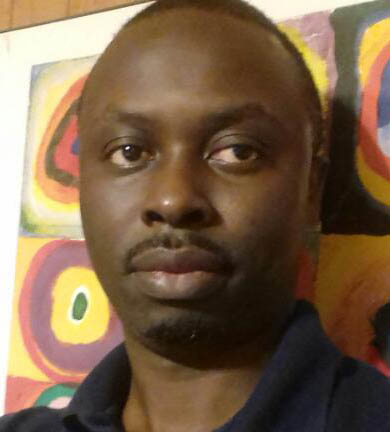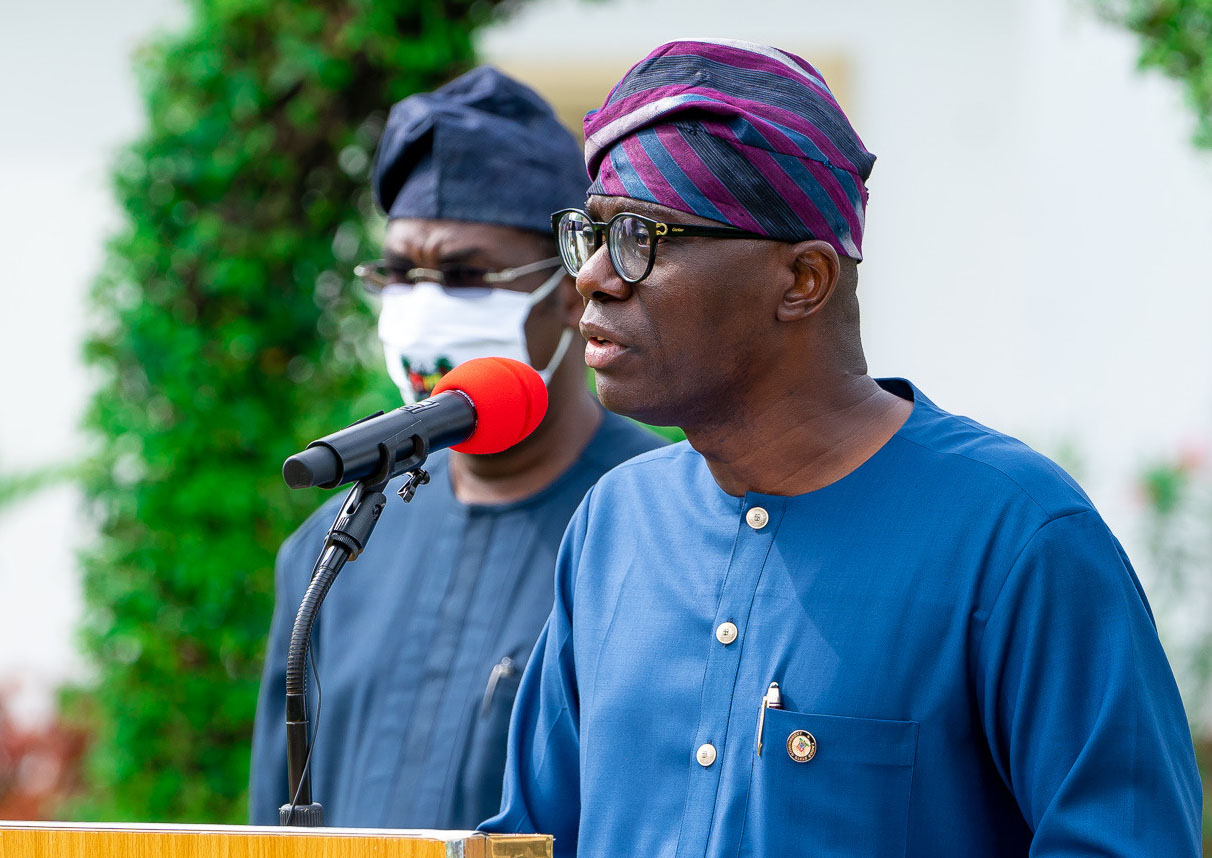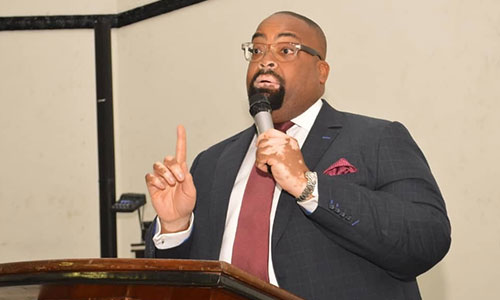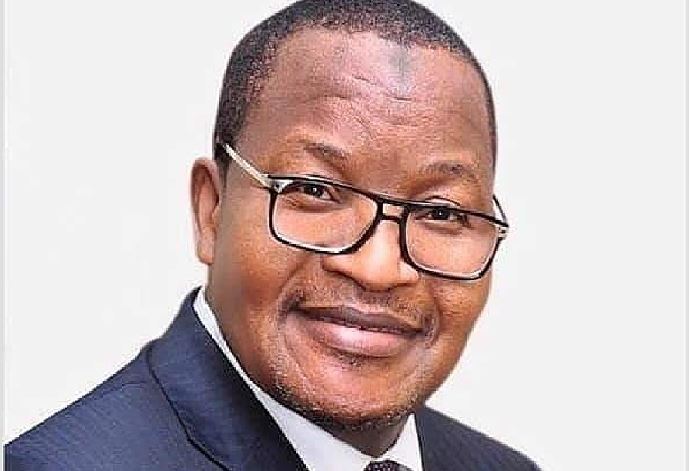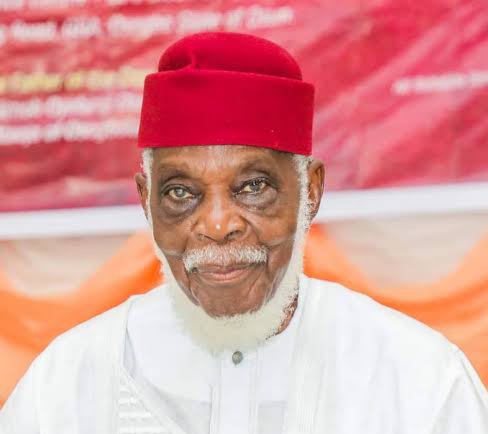If you’re looking for a good telling of humans of Lagos stories, you should check out the social media handles of the Governor of Lagos State, Babajide Sanwo-Olu. He connects in ways his colleagues around the country hardly do and he has surpassed his predecessors’ record in meeting people where they are.
To use common, everyday words, Sanwo-Olu is a man of the people.
It’s obvious, time and chances are at play but rarely, do we see a governor walk into a room and instantly put everyone at ease.
Last week, after the video of a boy (Oreoluwa) who stalled his mom from spanking him for his offence, went viral with his ‘calm down’ catchphrase, the smiley governor reached out with a request to meet the boy. He even adopted the boy’s catchphrase to pass a message of sobriety and safety to Lagosians as they grapple with coronavirus during Eid-el-Kabir celebration.
Advertisement
I think that offers lots of insights into the real man of the governor.
First, Governor Sanwo-Olu convinced the people of Lagos State that he cares about families and children and that his eyes will catch even the small things that people think may not have much appeal to leaders like him.
And by asking to meet the boy, the governor elevated his real message of reassuring vulnerable people that someone is on their side.
Advertisement
In March, when fire disaster took the lives of several Lagosians with multiple properties destroyed at Abule Ado, Sanwo-Olu carried the images of destruction to Abuja to show President Muhammadu Buhari, a sign of a deep sense of loss combined with a desperate search for help for his people.
You see, the ability of a leader to be empathetic and compassionate or otherwise will let you know his capability to put policies behind any social-economic crisis that could alter the lives of the citizens he leads.
I can tell two related stories. In March 2001, I was sitting in an office at the International Press Center in Ogba, when an explosion rocked Ikeja Cantonment. The vibration reached nearly every part of Lagos, including where I was in Ogba and everyone was terrified. After much delay before visiting the disaster scene, the former President Olusegun Obasanjo showed up with arrogance. Obasanjo arrived at the scene with no empathy for the people. He uttered words that pushed people deeply into dejection. “I am not supposed to be here,” he said, as he crafted his words to respond to victims of the blast on why he delayed.
In most recent history, when the late governor of Oyo State, Abiola Ajimobi, was faced with a situation that required empathy, he didn’t surprise anyone that he had none after he threatened frightened Ladoke Akintola University of Technology students whose university have been shut for several months due to disagreement between Oyo and Osun States governments on the funding of the institution. For his action, he earned the stripe of “constituted authority,” till he died.
Advertisement
Beyond the personal, empathy is the ability to recognize, understand, and feel the emotions of other people. It provides those who have it to respond appropriately to some other person’s thoughts and feelings.
In a time of isolation, despair, deprivation, confusion, and shock, connecting with citizens matters most but when a leader shows he cares and understands their situations, it is impressive.
Apparently, Oreoluwa’s story by its very nature and channel caught the attention of everyone but the other story of a man that the governor rescued from plunging into the lagoon in a suicide attempt on the Third Mainland Bridge revealed more about the blow-back effect of the social-economic crisis that COVID-19 and past situations have forced on Nigerians.
Across Nigeria, deaths of despairs commonly called suicides are rising and we’re pretending it is not there.
Advertisement
Before now, it is common to hear people say ‘Nigerians don’t commit suicide’ but that no longer reflect our current situation.
Think about this for a moment. What happens to Nigeria’s future if its young people are taking the hard choices of committing suicides?
Advertisement
That’s exactly what Daily Trust emphasised with its screaming headline of June 2019, that says “students top list as 42 Nigerians commit suicide in 6 months,”
With its headline, Daily Trust showed the impact of stress on a demographic that we should not have to worry about. Unfortunately, right now the spate of deaths of despair among that population should get us worried.
Advertisement
On July 31, Governor Sanwo-Olu wrote on twitter that “earlier in the morning, we rescued somebody who was planning to jump into the Lagoon at the Third Mainland Bridge because he had a debt of N500,000. We rescued him and paid the debt. These details are what makes the difference.
“We need to always show the humane side of us while not losing sight of the big picture. Yes, we want to build roads, bridges and schools but we certainly need to create time for the little things as well.”
Advertisement
Make no mistake, this COVID-19 crisis that has stretched and tested everyone beyond the normal and unforeseen ways is revealing resilience and grit of some people just as it is showing us how some people are driven to the edge by global anxiety. So, the governor’s gesture is simply right.
However, to simply cast himself as a handout governor without addressing the issues that are at the heart of suicide will be damaging to the reputation of Governor Sanwo-Olu who caught the sight of a leader who takes policy decisions based on foolproof research and data analysis of a trending subject.
At present, we’ve seen an uptick in the number of suicides across Nigeria. Indeed, hardly will you open a newspaper daily or hook up unto social media without a suicide story. It is depressive to see depressed people die by taking their own lives.
So what can we do as a country? We need to begin to act to prevent suicide and I think governor Sanwo-Olu can be a champion. He can define suicide as a national problem with mental illness as an underlying cause and then put it on the agenda during policy meetings at the federal level, in Lagos State and within the governors’ forum where his status as a cosmopolitan governor commands attention.
Based on facts, “rates of suicide, for instance, are higher during economic recessions and periods of high unemployment. They are also higher during periods of social disintegration, political instability and social collapse,” according to the World Health Organization
Now, what is this telling us? Elevated suicide rates as being experienced in Nigeria may indicate a high burden of mental illness triggered by socioeconomic variables and other factors.
To reduce suicide, there are important policies that the government needs to act upon.
One of the poor narratives about Nigeria is that as a country we know how to create laws but not how to implement the laws.
Does it surprise you that since Nigeria created a national policy on mental health in 1991, the implementation across states has stalled? At best it remains a paper that continues to gather dust with no serious implementation.
While strengthening economic policies that can improve household income is critical to changing the situation, addressing the gap in treatment and access to mental health care is important too.
In Nigeria, few people with mental health disorders go for treatment because of the stigma that goes along with having those conditions and being transparent about it. This barrier can be removed where the government is serious about offering solutions.
The danger of ignoring to act on mental health can have a spiral effect on lives and economy, so acting timely to make people comfortable in using the services will save the day.
The federal neuropsychiatric hospitals in Nigeria are not many. They are eight, poorly staffed with a shoestring budget and out of reach as people must travel miles from their homes to access care.
It is not a good story for Nigeria on the global map. Nigeria leads in depression data for Africa and sits almost at the top as the 15th country in the world with suicides rate, according to WHO.
Sadly, psychiatric care is least on Nigeria’s priority. We can look at the math together. In 2018, according to a report, Yaba psychiatric hospital submitted a budget of 133 million naira ($372,000) – but only 13 million naira ($36,000) of that amount was released by the federal government.
I don’t know where Lagos stands currently on mental health, except that its health ministry posted a “proposed mental health policy for Lagos State” on its website, but I know that Mr Sanwo-Olu can bring necessary changes to mental health in Lagos State, just as he’s strategically positioned to be a champion of this change at the federal level.
Quote: So what can we do as a country? We need to begin to act to prevent suicide and I think governor Sanwo-Olu can be a champion. He can define suicide as a national problem with mental illness as an underlying cause and then put it on the agenda during policy meetings at the federal level, in Lagos State and within the governors’ forum where his status as a cosmopolitan governor commands attention
SIDE EFFECTS
Class of 2020
It must have been a big relief for young people who are facing this year’s West African Senior School Certificate Examination to hear the news that they would commence the examination on August 17. Now it is time to turn your despair to hope and get the best out of this. I know everything has been in limbo for months but that surely should advantage to get safely to the end of your curriculum. I’ll leave you with the words of Robert Kiyosaki. “Don’t let the fear of losing be greater than the excitement of winning.” Good luck!
Isaias Not Isaiah
The names of hurricanes in the U.S can be funny. We’ve heard of Hurricanes with fancy names. We’ve heard of hurricanes with human names. Hurricane Andrew, Sandy, Katrina, Maria, Harvey and now it is Isaias. But don’t twist it, this is not Isaiah the prophet coming like a flood. This hurricane is pronounced ees-ah-EE-ahs. The important issue here is that Florida is facing a double crisis with COVID-19 surging in the state and storm settling on its coast. Let’s pray for Florida to have peace in the storm. Troubling
Merit Vs Mediocrity
The issue of power rotation is a touchy issue in Nigeria. For all you care, it is not in our constitution. It is just some political capitalists trading and distributing political power like family biscuit among themselves in a non-binding agreement. But it has helped for inclusion, otherwise I don’t know how someone from the Niger Delta will ever become Nigeria’s president. If you ask where I stand, I will go for merit, regardless of how we interpret Mallam Mamman Daura’s message. The turn by turn, power shift or rotational presidency has not improved Nigeria in any way, but it helps for inclusion and avoidance of crisis. Sensitive!
Views expressed by contributors are strictly personal and not of TheCable.
Add a comment
